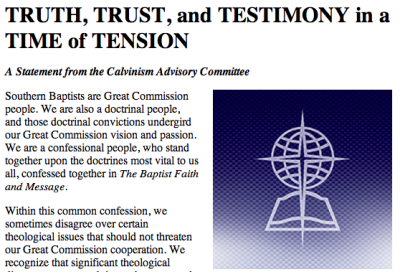Book Review - Biblical Essays
[amazon 1594622388 thumbnail]
Reprinted with permission from As I See It, which is available free by writing to the editor at [email protected]
Discussion
What is the "New Perspective on Paul"? A Basic Explanation (Part 4)
 Read Part 1, Part 2, and Part 3.
Read Part 1, Part 2, and Part 3.
NPP righteousness versus Pauline righteousness: The “Works of the Law”
In an excellent piece for Christianity Today entitled “What Did Paul Really Mean?” (thanks, Filops!) Simon Gathercole called attention to the way New Perspective scholars interpret the phrase “the works of the law.” He writes:
According to the new perspective, Paul is only focusing on these aspects of Jewish life (Sabbath, circumcision, food laws) when he mentions “works of the law.” His problem isn’t legalistic self-righteousness in general. Rather, for Jews these works of the law highlighted God’s election of the Jewish nation, excluding Gentiles. Called by God to reach the Gentiles, Paul recognizes that Jews wrongly restricted God’s covenant to themselves.
Gathercole’s comment matches Dunn a little more than Wright, but neither scholar thinks “works of the law” means the achieving of merit through religious deeds. Certainly we can say it is doubtful if many Jews in the Second Temple period were “legalistic” in the sense that they truly believed their works were good enough. But they were still going about to establish themselves by the law:
Discussion
If you could recommend only one book....
If there is already a thread on this, please point me to it….and accept my apologies.
If you could recommend only one book to someone serious about their walk with Christ, what would it be?
Not including any of the 66 books in the Bible….
Dwayne
Discussion
Promises to Israel: We Should Expect Literal Fulfillment

If Israel has been chosen to perform a special role in the divine plan, what promises have been given to Israel that will enable that ancient people to fulfill that role?
The Apostle Paul is clear on the great privileges that God has granted Israel. He wrote in Romans 9:4: “who are Israelites, to whom pertain the adoption, the glory, the covenants, the giving of the law, the service of God, and the promises.” Paul nowhere intimates that these great privileges have been annulled, forfeited, or cancelled. As a matter of fact the three chapters of which this verse is a part (Rom. 9-11) have as one of their purposes to emphasize that God has not cancelled His promises to Israel or transferred them to some other people! What says Paul in Romans 11:1?: “I say then, has God cast away His people? Certainly not! For I also am an Israelite, of the seed of Abraham, of the tribe of Benjamin. God has not cast away His people whom He foreknew.”
Discussion
In Mark 3:11 and elsewhere, demons identified Jesus but he silenced them. Why?
Poll Results
In Mark 3:11 and elsewhere, demons identified Jesus but he silenced them. Why?
Jesus did not want to receive testimony from the demons but wanted people to conclude he was Messiah by his works and person Votes: 8
The demons worshippied him and acclaimed him hoping for mercy, but he did not wish to discuss it Votes: 0
Jesus did not want to make it easy for onlookers to assume he was in league with them Votes: 1
Other Votes: 4

Discussion